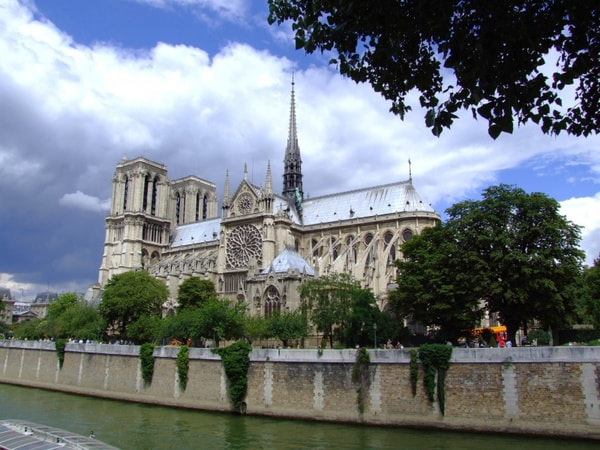This website uses marketing and tracking technologies. Opting out of this will opt you out of all cookies, except for those needed to run the website. Note that some products may not work as well without tracking cookies.
Opt Out of Cookies|
By Olivia Pierson
[First published on Incite 23/4/19] Something in the New Zealand psyche is undergoing a current transformation that cannot be denied. It is as if we have awoken from our naive, youthful reverie of only dreaming about the possible, to be confronted by the glare of grown-up reality: the unrecognisable road that our country is being led down. It started, of course, with the Christchurch mosque shootings, a monstrous mass killing of innocent men, women and children. The fact that a man came here from another country and committed this murder, thereby destroying our peace, horrified us all. Then our prime minister, as a matter of personal choice, clothed herself in female Islamic attire, never a great look for a free woman leader of a free country, even if the intention is to show ‘solidarity’ with the victims. The meaning of that headscarf in Islamic societies denotes something entirely the opposite of personal choice for women; in fact, it symbolises to Islamic women that they don’t have one. Aside from that ham-fisted gesture from our PM, there was also the televised Islamic call to prayer in Arabic brandished across our media outlets, which is about as foreign to Kiwis as the Japanese Samurai sword and fan dance. Generally speaking, if folks expect a free flow of sympathy and solidarity with other folks it’s usually a good idea if communication happens in the same language. Religion was brought front and centre to our minds after these events. Then came the peculiar advice from police to some Returned Services Association staff in Birkenhead, Auckland, that many upcoming Anzac day services would need to be cut back due to “safety” reasons because New Zealand is still on high terror alert after Christchurch. The Minister of Police, Stuart Nash, has since denied in Parliament that any such advice was given, but RSA staff stated that it emphatically was given – and not just as advice but as something more akin to orders. During this volatile week, a high profile Anzac commemoration team in Titahi Bay, Wellington, invited an Islamic imam to come to the service to once again publicly offer up an Islamic prayer. The backlash at this odd and opportunistic invitation was perpetuated by more than just offended old time vets. Social media, both in this country and across the Tasman from our Australian cousins, voiced their disgust at this forced multicultural inclusivity at our secular nation’s last remaining ‘Holy Day’ with the cry: “Leave our Anzac remembrance services the hell alone!” As I understand it, that cry was heard and the invitation to the imam was rescinded. The following week, good old Israel Folau, known to be well and truly on Team Jesus, channeled his inner prophet and posted to his Instagram feed a verse out of St Paul’s letter to the Galatians from the Bible stating: Now the works of the flesh are manifest, which are these, adultery, fornication, uncleanness, lasciviousness, idolatry, witchcraft, hatred, variance, emulations, wrath, strife, seditions, heresies, envyings, murders, drunkenness, revelings, and such like: of the which I tell you before, as I have also told you in time past, that they which do such things shall not inherit the kingdom of God. Galatians 5:19-21 KJV He added a meme which paraphrased this whole verse: “Warning: Drunks, homosexuals, adulterers, liars, fornicators, thieves, atheists and idolaters, hell awaits you. Repent. Only Jesus Saves!” Though I am not a believer by way of a personal relationship with Jesus Christ, I could’ve just kissed Israel for quoting the King James Version of scripture. It is sadly rare for Christians in this modern age to use this incomparably beautiful translation, which was authorised during the high-Renaissance and in the time of Shakespeare. Churches today busy themselves relentlessly modernising into 8-piece-band ‘Rock Churches’ and watering down all the language of old-time religion into something indescribably insipid and wincey. They do this not just because of our culture’s chronic infection from postmodernism’s impoverished taste in music and literature, but usually in feeble attempts to affect some measure of ‘cool’ and help keep the younger flock content to stay within the fold. The mistake is then made of not giving young and impressionable minds something noble and high-minded to rise to, but instead reducing public worship of the Almighty Creator of Heaven and Earth down to inelegant, colloquial cant and mindless musical ditties. So God bless Israel Folau! If the King’s English is good enough for Jesus Christ it should be good enough for modern Christians. Then came the despicable backlash of condemnation against Folau from all corners of the sporting, entertainment and political worlds, along with the possible termination of his contract – all because he opined on some well-known ethics of his long-ago defanged Christian faith. This sent a strong message to Australia and New Zealand that freedom of expression does not seem to apply to Christians in this post-enlightenment culture of ours. The Enlightenment’s political innovation of building a wall between Church and State in Western democracies renders Folau’s judgements completely harmless. What strikes me as totally hypocritical is that under our current prime minister’s watch, Trevor Mallard reformed the parliamentary prayer for the sake of being more inclusive of the diversity of faiths which may be held by our collection of MPs. Yet, straight after the Christchurch massacre of Muslims, another imam opened the very next parliamentary session with an Islamic prayer, begging the question: was Mallard’s “secular” prayer not then inclusive enough for Islam? Islam, unlike Christianity, has never undergone an enlightenment, which is arguably the reason for its horrendous backwardness. Just look at last month’s new reforms in Brunei, which now allow for the legal stoning, hangings, amputations and beheadings of homosexuals, fornicators, adulterers, thieves and idolaters, bringing Brunei into step with other Islamic countries such as Iran, Saudi Arabia, Bangladesh, Nigeria, Pakistan and Afghanistan. What the devil is going on with this sick government of ours? They don’t allow believers in our heritage faith, with its central tenet of liberty of conscience, to stand unmolested in the marketplace of ideas, yet they seem to be perfectly comfortable giving special favours to the practitioners of a deeply foreign faith that is still virulently aggressive after 1300 years of existence – and completely absent the civilising central tenet of liberty of conscience. Thus, religion made its way into the forefront of our politics again this month, whether we like it or not. Finally, this turbulent month saw the great fire of Notre Dame Cathedral. The world watched helplessly as an 850 year old church, built to the eternal glory of God by the temporal hands of man, burned for twelve hours; a Gothic civilisational touchstone of incomparable value was almost destroyed. After this inexplicable shock and after most of the ancient structure was found to be saved, through the screens of our televisions and computers we saw the French people standing together outside Notre Dame and heard them mourn and sing old French hymns, igniting a sentimentality in this now staunchly secular nation for the beautiful achievements of old Christendom and what they may mean. But what might they mean? It took 182 years to build Notre Dame of Paris. It was begun in the 12th century and finished in the 14th. This epoch bore witness to a massive, energetic outpouring of physical and intellectual beauty vividly remembered via the achievements of architecture and art. It also saw the Christian faith begin to absorb ancient Greek thought through the mind of Thomas Aquinas as he sought to balance the teachings of the greatest rational philosopher known to man, Aristotle, with the revelations of holy scripture and church doctrine. This was Aquinas’s mission: to marry religion to reason, theology to science. Aristotle posited the idea of the “Unmoved Mover”, the ungenerate cause of the generative world. Aquinas believed this to be God, the first cause of all creation.
The 16th century Protestant Reformation was devastating to the centralised ecclesiastical power of the Catholic church, and by the time that the 18th-century Enlightenment began to caress the mind of the European common man, the fight that came to the fore was not just about religion vs science, but more about religion vs politics. Church and State finally got a divorce and from then on individual belief and devoutness among people in societies became a mere matter of private, individual conscience, as it should be. Hence Christianity became totally defanged as a political force to subjugate the lives of ordinary men and women.
As the Notre Dame fire ignited an outpouring of grief over the near destruction of this artistic Christian monument of stone, wood and glass, I saw a yearning for unity and something resembling an impetus for the eternal and unchangeable. A cathedral that has been beloved by the French people, and also by many globe-trotters for 850 years, speaks to something beyond just our own lives; it speaks to the eternal. There was also the immense grief at watching something of transcendent beauty nearly be destroyed – the moment when the spire fell down in flames caused many people worldwide to exclaim out loud, “Oh no!”, and cry, including this writer. Outside of the natural world with its transcendent mountain peaks, beauty bound to eternity are concepts which have been most notably intertwined by man within the realm of religious tradition, but as such traditions have become less venerated, one wonders where these concepts can be fused together outside of a past religious impulse? I’m not making an argument for the veracity of Christianity as a metaphysically realistic, coherent philosophy, because to me it is no such thing. But undoubtedly, it is our civilisational heritage, the solid bedrock of the many wonders that our civilisation has gone on to bring us, such as great beauty in art, architecture, literature and music, liberty, and a commitment to scientific inquiry with its wondrous gifts of technology and medicine. Above all, this heritage of ours furnished civilisation with a reverence for the dignity of the human spirit. I’m with Abbot Suger, the French patron of 12th century Gothic architecture, when he said: "The dull mind rises to truth through that which is material." Notre Dame has stood as an earthly testament to beauty and eternity for centuries and also a testament to the unchanging truth of the laws of nature. Thank goodness its structure still stands in real time, buttressed by the architectural innovations of visionary men long dead. If you enjoyed this article, please buy my book "Western Values Defended: A Primer"
It’s only fair to share! :-)
5 Comments
|
Reality Check Radio: Six Hit Shows in One Week on the Assassination Attempt on Trump. NZ is Engaged!
Post Archives
July 2024
Links to Other Blogs |


 RSS Feed
RSS Feed